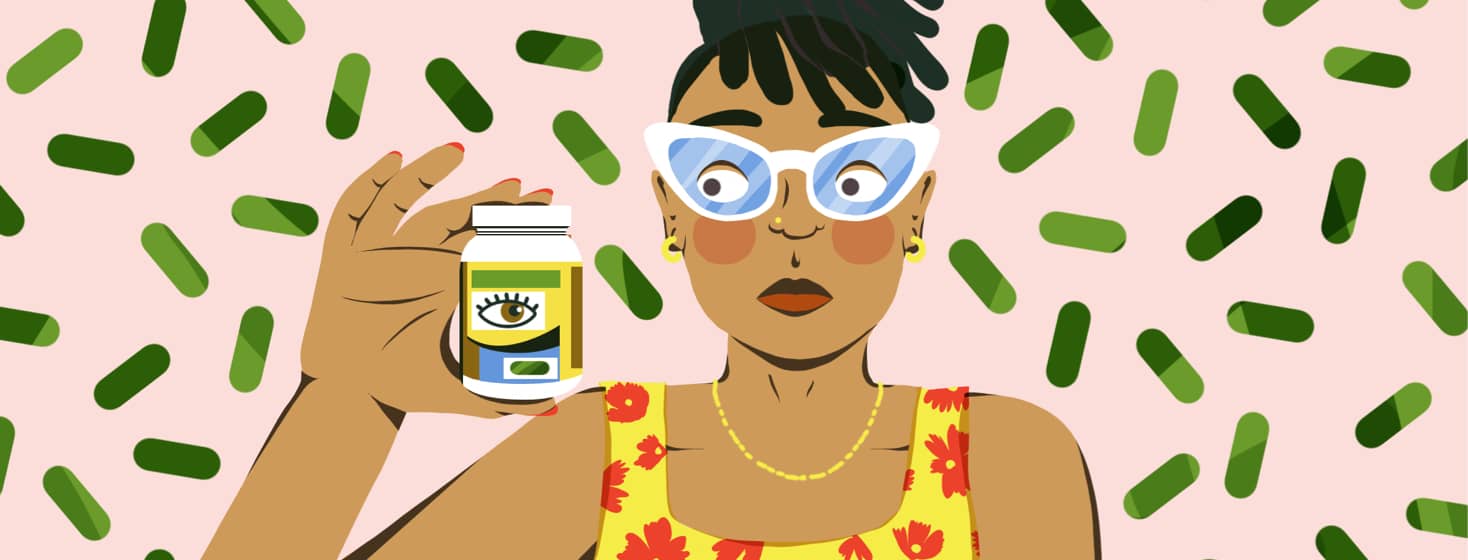How Do I Know If I Have a Zinc Sensitivity?
Zinc sensitivity is quite a topic in the macular degeneration world. For starters, it’s listed as an essential nutrient for the health of our eyes and is listed as an ingredient in the AREDS 2 formula vitamins that many of us take.
The prevalence of zinc sensitivities
Sounds pretty simple, right?
Well, not so much. You see, studies show that about 15% of the population has what’s called zinc sensitivity. That means that, for these people, zinc does more harm to our eyes than good. How confusing, right? Before I get into my main point for this article, I think it’s important to give y’all a little bit more information about this.
How do I know if I'm in the 15%?
You may be wondering how you can find out if you’re in the 15% of people who need to be more cautious with the amount of zinc they’re ingesting each day. There is a company called ArcticDX that does a genetic test called the Macula Risk test. It’s a simple cheek swab that can be done in most retina specialists' offices, and even in some optometrist and ophthalmologists’ offices.
This test gives you a lot of unique-to-you information about your eyes and your risk for developing macular degeneration. However, it also tells you whether you are zinc sensitive or not. No worries, if you’re in the 15% that is zinc sensitive, there are alternative supplements and vitamins you can take to give your eyes the other nutrients they need sans the zinc.
Trust your gut
I’ve thought a lot about the idea behind this. I remember struggling to find someone to give me the Macula Risk test about five years ago. My retina specialist told me that I should save my money for Christmas presents, showing that he cared less about this test. I was not satisfied with his response, so I then went to my optometrist who loved the idea of it, got trained in order to give me the test, and then tested me.
Side note: I’m not sure why my doctor told me to save my money for Christmas presents because the test only cost me my insurance co-pay, but that’s for another article. Also, I’m so glad I trusted my gut on having this testing done because I happen to be in the 15%.
Age Matters
As I reflect on all of this, I can’t help but think of my age. You see, I was only 26 when I was diagnosed with Myopic Macular Degeneration. I was tested for my macula risk at the age of 34, and I recently turned 39. That means that I (hopefully and potentially) have 50 more years of eye health to maintain.
Possible outcomes
Here’s the way my brain processed this information. If I would have listened to my retina specialist and not prioritized the knowledge that this test provided me with, I would have harmed my eyes by taking the AREDS 2 formula with zinc... for possibly 60 years!
Many people who are diagnosed with macular degeneration and take the AREDS 2 formula are living in later stages of their life than I am. So, I had a lot of years ahead of me to think about when determining the right-for-me supplements.
Knowledge is power and it’s important to not just hear what our doctors are saying and etch it in stone. We have to advocate for ourselves and trust our intuition along the way.
Andrea Junge

Join the conversation